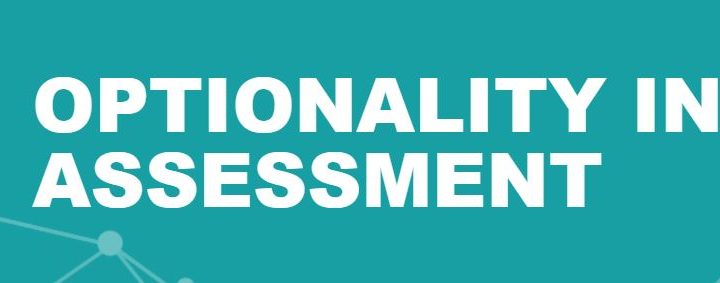UCL is working with the University of Manchester, University of York and Imperial on a Quality Assurance Agency (QAA) funded project to explore the potential for assessment optionality – and we want to hear your thoughts.
What is assessment optionality?
Assessment optionality is defined in our project as student choice. It is a novel practice, which provides students with greater choice around how they are assessed. For example, this could mean choice around when students submit assessments, the format in which they submit assessments, or the choice to submit assessments as an individual or a group. This could have several benefits including more inclusive assessment, mitigating against malpractice, supporting individual learning needs, and improving the student experience.
The project (in collaboration with the University of York, Imperial College London and UCL) will investigate academic and student opinions on the feasibility and practicality of assessment optionality – as well as exploring what colleagues are already doing in this area, and how we could empower and enable more colleagues to try it for themselves.
- Learn more about the optionality project on the QAA website
Get involved
As a first step, we’re inviting all inviting all staff who teach students to complete a survey, to understand how our academic colleagues feel about optionality, and any experience they may have with it.
The survey has also been shared internally at York, Imperial and UCL, and we will use the results to shape a similar survey for students – before conducting interviews to further explore and understand assessment optionality in Higher Education.
The survey only takes 15-20 minutes to complete, and will close on 15 March 2023. The survey is an essential part of this project.
If you have any questions on the survey, please contact the Flexible Learning team at FlexibleLearning@manchester.ac.uk or Jesper Hansen (UCL Lead: j.hansen@ucl.ac.uk).
Reposted from: https://www.ucl.ac.uk/teaching-learning/news/2023/feb/assessment-optionality-help-shape-our-research
